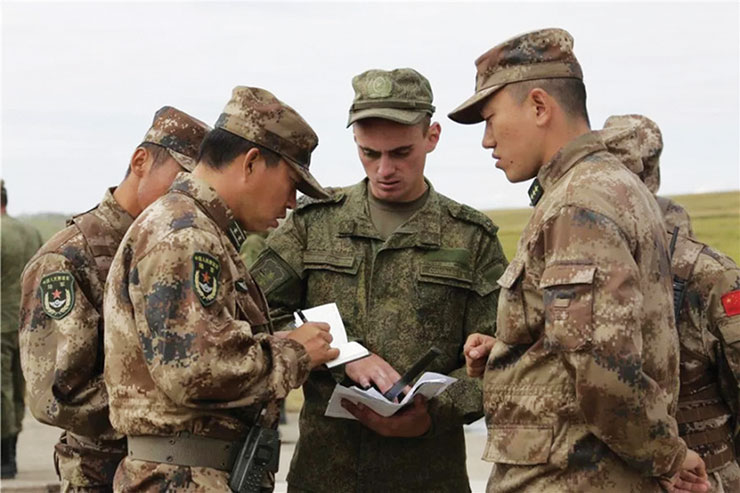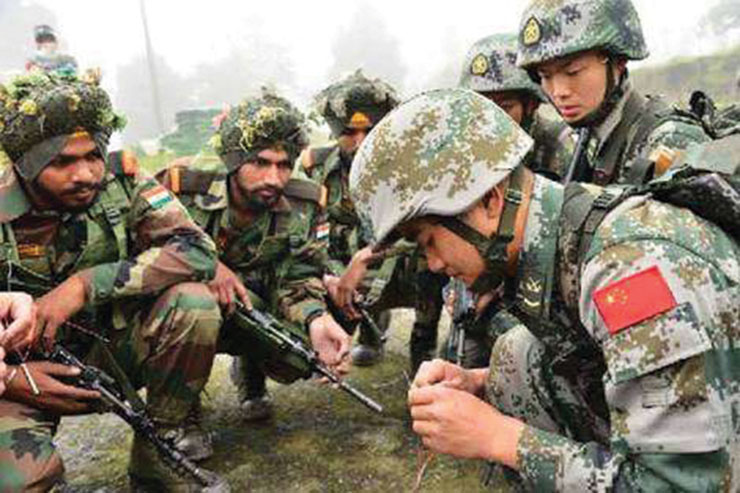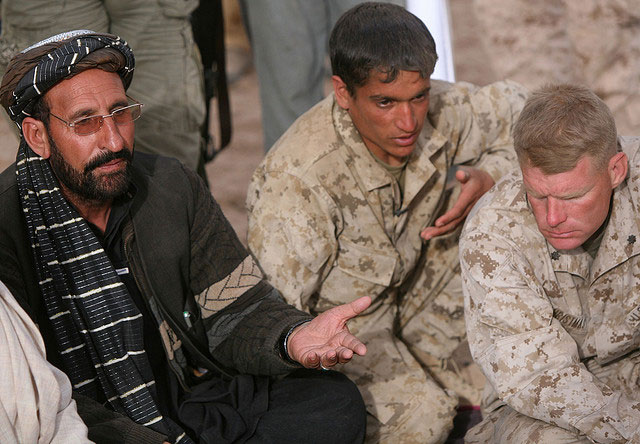
TWO WORLD WARS and the Cold War era can be a few of the major reference events regarding the role and importance of foreign language in defence and strategic sector. The changing socio-political dynamics created the necessity to understand and learn the languages of the alliance, and more importantly the enemies. Even in today’s scenario of changing geo-political dynamics, the then need of the hour to acquire necessary language (German/Russian/Japanese) skills apart from English could not be less emphasised upon. That apart, subsequent to the disintegration of Soviet Union and fading of the bipolarity in the world has led to a more regionally focused influence among the emerging major power centres.
The new world order which is beyond the previous order added regions of influence and the new dimensions of interaction among each other. In this new world order, the influencing state attracts other states to move into new dimensions of security and trade which includes regional security. Going further the group of nations work on common platform to address the underlying issues whether it is security threat or ensuring security to one another.
Foreign language acts as a powerful enabler of change with higher degree of responsibility and accountability in public policy formation. It plays a vital role in policy development by empowering the decision makers with the necessary skill set for better comprehension of various issues and concerns.
The contribution of foreign language to the strategic sector can be in numerous dimensions few of which are discussed as under:
ENGAGEMENT, KNOWLEDGE TRANSFER AND TECHNICAL KNOW HOW
According to a recently published report, India has signed 182 contracts over the last three years and the current year with domestic and foreign vendors for the procurement of defence equipment for the three armed services.

The residing country of these foreign vendors ranges from Russia, Israel, US and France, etc. By their nature these are long term contracts and have an inbuilt element of technology and knowledge transfer for repair and maintenance of the machines and equipment under contract. Here comes the necessity to learn and know the foreign language or the languages of the certain above countries among others.
If we take example of the current year itself, Indian defence forces had Joint armed forces exercise with various European and Asian countries with objectives in mind from exchanging information to being technically and operationally combat ready in varied topographies and scenarios. The engagement in such drills provide valuable experiences to the participants. In such events, know-how of the language of the partner countries and their cultures is definitely an added advantage resulting in better communication, clarity, coordination and efficacy in accomplishment of the mission objective.
UNDERSTANDING OF FOREIGN LANGUAGE MATERIALS
The official page of the United Nations (UN) finds mentions that, “There are six official languages of the UN. These are Arabic, Chinese, English, French, Russian and Spanish. The correct interpretation and translation of these six languages, in both spoken and written form, is very important to the work of the Organization, because this enables clear and concise communication on issues of global importance. ”

Maintenance of international peace and security forms one of the central missions of UN. The Security Council enacts on the mission by prevention of conflict, creating conducive conditions and establishing Peacekeeping Operations and Special Political Missions.
The statement highlights the importance of these languages at the Inter-Governmental forum and their role as an enabler for prudent decision making at international level. The information mentioned on the page also accentuates on multilingualism as a core value at UN and simultaneous Interpretation and Translation for comprehensive participation and effective deliberations.
This is all possible if one knows the variety of languages. Mentioning the importance of six languages on the official page of the United Nations, one of the biggest multilateral geo-strategic organisations, itself is a mandate almost acceptable to all that the learning and knowledge of language is very important in the present scenario.
ENDURING SECURITY THREATS
The changing nature of security threats are redefining contours of their existence. From being geographic specific to that of cyberspace, the magnitude of threats from multidimensional risks is increasing. The prevailing security threats faced by any country are higher than ever. A threat that was of high relevance in the past may or may not be currently of much importance. Similarly, a country which was not a major threat in the past may have evolved over the period of time as a major threat regionally and globally. The changes in the political and social landscape of a country can be a major influence in global positioning of that country. North Korea can be considered as one of such examples. Events like Doklam can be a major incitement in the diplomatic ties between the countries, their political geography and related foreign policy. Hence, such evolutions and events highlight the need of understanding the related language(s) at various levels of politics, diplomacy and as well as on the ground.
ENSURING CULTURAL UNDERSTANDINGS

The modalities pertaining to learning of a language go beyond just the script and literature of it. It also brings an understanding of the cultural aspects related to it. Certain social beliefs and outlooks may be acceptable in a certain culture but somewhere else they might be objectionable. There are and can be striking resembles and/or striking differences of cultures prevailing across the border of two neighbouring countries. A foreign language introduces these cultural nuances to an individual which ultimately help them in getting a holistic overview and thus enabling them with a logical decision making.
Therefore in the final analysis, it can be said that the learning and knowledge of different languages can be a booster to a peaceful, purposeful and progressive relations between the countries, be it in terms of defence and/or any other strategic affairs. At the same time, it is also helpful in removing barriers and bottlenecks and concerns and conflicts among the nations while bringing them together regionally and globally towards a peaceful society in general and the world in particular.
– The author is Director at BLB Academy, Gurugram and can be contacted at yadav.sangeeta@gmail.com















